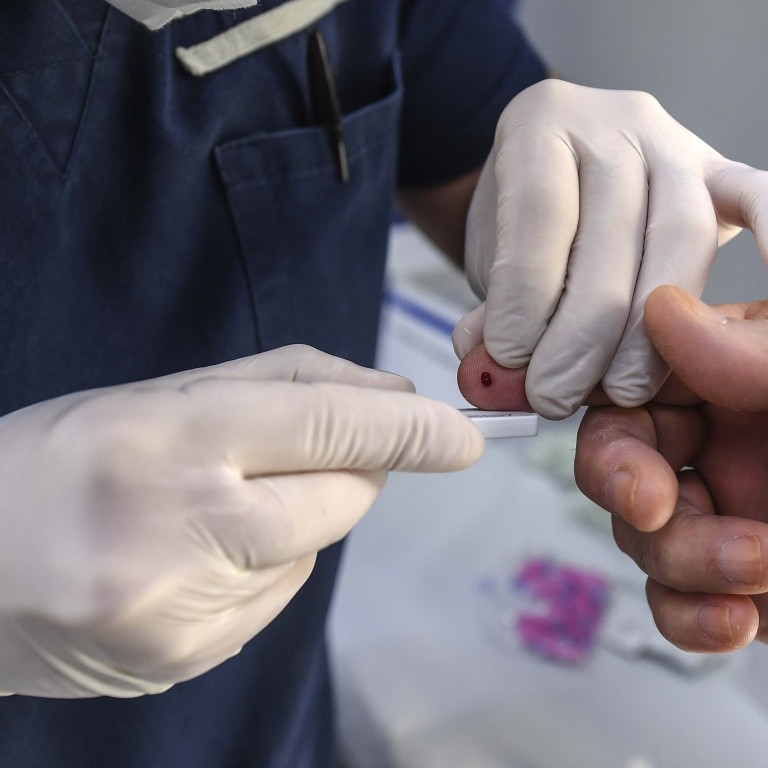
Coronavirus: Hong Kong explores using finger pricks to draw blood for airport antibody tests
- The technique, already in use in Macau and mainland China, could be employed in place of drawing blood with a syringe, government pandemic adviser says
- City, meanwhile, confirms two new Covid-19 cases, both imported, ahead of press conference explaining roll-out of vaccinations for the 12 to 15 age bracket
Hong Kong confirmed two new Covid-19 infections ahead of that press conference. Both were imported. The cases, arrivals from Britain and Mauritania, took the city’s overall tally to 11,874, with 210 related deaths. Fewer than five people, meanwhile, tested preliminary-positive for the virus.
Speaking on a morning radio show, Professor David Hui Shu-cheong of Chinese University said the finger prick method could be used in place of drawing blood with a syringe if it was accurate.
“Traditionally, antibody tests are done by drawing blood with a syringe. So with the finger prick tests, we must test them to make sure they are reliable before putting them to use,” Hui said, adding results should be available within half an hour depending on the devices used.
“Drawing with a syringe is, of course, the most accurate. As for the finger prick tests, there are many types in the market, and the quality varies,” he said.
The proposal has been supported by Chief Executive Carrie Lam Cheng Yuet-ngor, who said her government would study the idea seriously.
HK$118 million worth of perks, prizes on offer for vaccinated Hongkongers
Since Saturday, neighbouring Macau has been requiring arrivals from Brazil, India, Nepal, Pakistan and the Philippines to provide either proof of vaccination or a negative antibody test, in addition to showing negative results for three polymerase chain reaction (PCR) screenings completed in the week before departure.
Hong Kong currently bans the entry of any travellers who have been in those five countries, or South Africa, for more than two hours in the preceding 21 days.
Airports currently providing antibody testing on entry include Boston Logan International, Istanbul Sabiha Gokcen, John F. Kennedy International, London Gatwick, London Heathrow, Munich and Newark Liberty International.
Hong Kong’s push for antibody testing comes amid a rush to identify the source of infection of a teen found to be carrying the alpha variant of the coronavirus last Friday. The case broke Hong Kong’s 42-day streak of zero untraceable infections.
But experts told the Post on Wednesday that while they believed the girl’s infection was linked to imported cases, comparing her genome sequencing against tens of thousands of sequences from local and global databases had so far turned up nothing.
The girl’s mother and sister were also later confirmed with the same mutation.
Lack of travel bubble, Thailand’s high-risk status spoil tourism overtures: experts
The University of Hong Kong’s Dr Ho Pak-leung, meanwhile, argued that the finger prick model was actually the more sensitive screening method and should be used in antibody testing for unvaccinated arrivals.
“Since the point is to prevent cases from leaking into the community, the more sensitive tests can catch more people, who can then be isolated for more in-depth testing at hospitals,” he told another radio programme.
The finger prick method has been in use in Macau and mainland China for several months, Ho said, adding it was worth learning from those examples.

